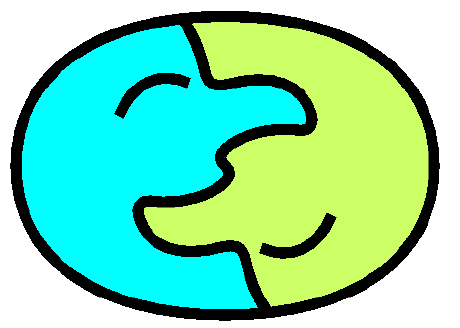Money Game
a strategic business model for the future
How to win in the movie business
Provide a valued destination (especially emotionally empowered by fear or loss reversal), with movement toward it, time constraint/urgency, assert a plan exists. Then lots of chase scenes, fighting, near escapes. Possibly some simple personal growth like for the boy to actually become able to say he likes the girl, etc. Now you have a money-making movie plot.I think that about captures the whole business. But can we do the same, provide a structural description, for a successful business model of the future? I think so. Here's an attempt:
Structure of a sticky social game world
Create an in-game market.Advance credit to the creditworthy, who must pay it back (or from the perspective of government, may but should not really pay it back until such time as a constriction in the money supply is desireable) but can usefully produce with it meantime.
Define production as, for example:
- attentiontokens or
- coolness, likes, assessments.
- software widget creation
- the use thereof;
- plot components;
- automatic story creation;
- character forms;
- group triangles;
- archetypes;
- useful code components;
- intelligence in some form;
- hilariousness.
Impose in the game structure the feature that creativity itself requires spending in the space. But you can borrow that in game money in order to produce, i.e., to put that product into the space. Instance reuse having a cost that the producer must pay for, for the privilege that the user must then pay extra for, so that the in-game central bank will get its loan paid back. Like a resource cost, or a cost of production.
Then you need a place to spend it. On advertising. On admission tickets for your own direct consumption. On a cash exchange market.
Give a UBI to participants to support a consumption economy. Provide for bankruptcy, too, though; or let folks buy in on the cash exchange market.
Juggernaut
Above are characteristics of a future high-value high-scale business. Think about them. Try to find something in this space which reduces these ideas to practicality. Then you may create a juggernaut of a business.The key to long term business is not (merely) a new idea, but (also) being a non-replaceable repository of long term value. If a customer/investor/holder's value account can only live and exist inside the business, then you won't abandon it; you will always come back to it because of the value that you've built there. Low-cost competitors can't come in with the same idea and take you out, because it's not the ideas of what people do in the space that keeps the businesses separate, it's that the participants all have their value located and stored in the space and can't take it with them.
Consider how (crypto-)currency has this kind of quality, you can't quite take your value with you. Rather your value account inside a given currency is itself denominated in that currency; stored in that particular blockchain, for example. You can individually escape the system by exchanging it, selling it, for example, but that just swaps out owners without swapping out the value retained inside the currency system, all things being equal.
However currency is vulnerable in that if buyers can't be found and sellers finally sell for pittances then the retained value drops toward zero without a blocking support relationship to something separately valuable. If you could add to the mere monetariness of the currency unit some other-dimensional value metric such as time, effort, skill, connection, pleasure, ambition, etc., and those could retain their value, then the free-fall might be stopped. A skill game with a currency reward, perhaps.
My purpose here is not to tell you the details, but to describe at the right level of abstraction some essential business product aspects that distinguish success from failure. Competitive destruction is what we face, so how can we actually set up for long-term success? What does a sustainable competitive advantage look like? Let's think about the money game.
